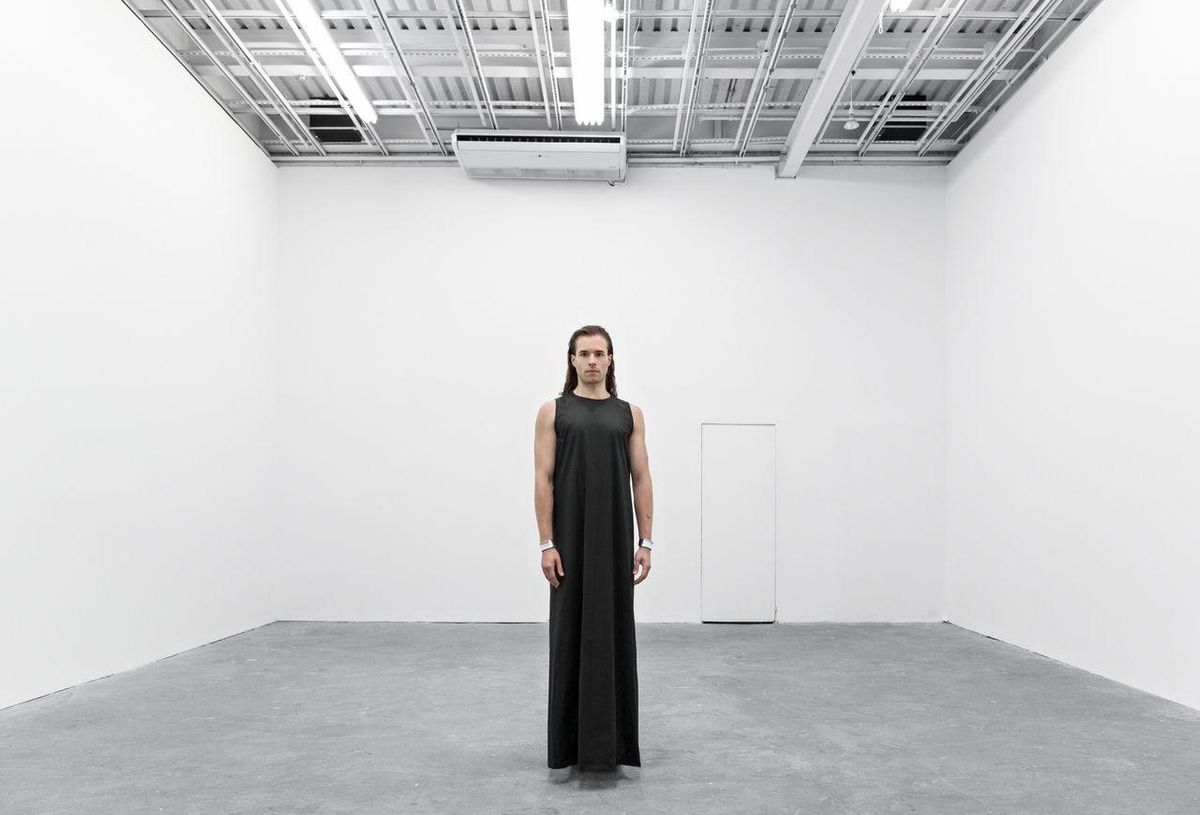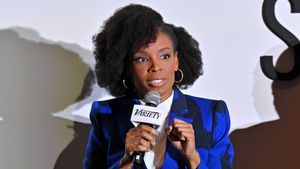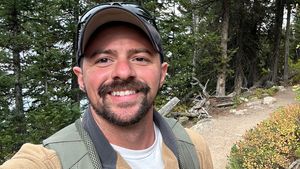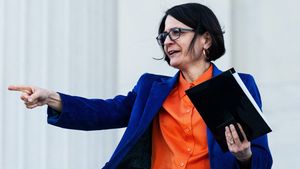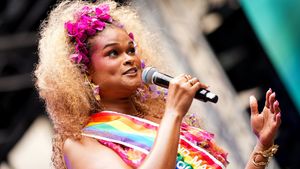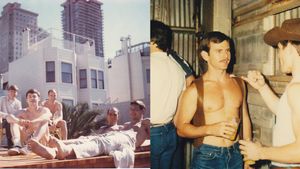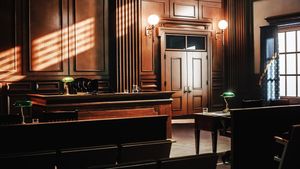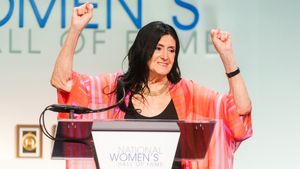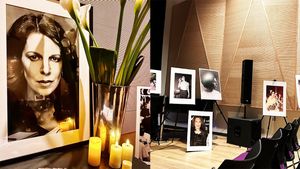In the age of social media and instant gratification, sitting through hours of live theater often seems like such an arduous task for those with diminished attention spans. For some, opera has been relegated to an art form that is archaic, elitist, and inaccessible to the masses. The problem is, so many people who discredit the medium, have never been to an actual opera. With supertitles readily available, HD broadcasts of live performances being shown in movie theaters, new works being commissioned yearly, and modern directors updating operas with contemporary settings, the genre is evolving. The question remains whether or not it is progressing fast enough to be truly relevant in the current culture climate.
In the wake of New York City Opera's demise, new companies have been sprouting up everywhere in the city, and opera has been injected with fresh blood and a renewed vitality. In the Lower East Side, a revered gallery and an audacious young director are doing something that no one else seems to have thought of before. For the second year in a row Whitebox Art Center, in collaboration with R.B. Schlather, has lovingly relinquished its space to the 29 year-old director, his creative production team, and a talented group of musicians, as a sound laboratory of sorts. Following the rousing success of Schlather's ingenious staging of Handel's Alcina in 2014, the gallery has been transformed into a rehearsal and performance space for 18th century baroque opera. Orlando, the second installation of Handel's Trilogy to be mounted at Whitebox, is sure to garner the same acclaim April 26 and 27 when it's performed in the New York City gallery space.
The rehearsal process, while intense and demanding, is just as fascinating as the resulting final performances. Schlather knows this all too well and has brilliantly opened up these rehearsals for the public to view them both in the space and through a live, online video stream. Everyone from Yoko Ono to Justin Vivian Bond and queer rapper Big Dipper have been spotted inside, along with curious tourists and locals. Through this process, the gap between audiences and artist accessibility narrows. Charismatic, passionate, and immensely intelligent, Schlather's clever directorial instincts and talent seem to be exactly what opera in the 21st century needs in order to insure its survival. He recently spoke with Out about Whitebox, Orlando, and how his career as a queer director in the opera world has evolved.

Photo: Matthu Placek
Out: You received a lot of critical praise for your direction of Alcina last year. How did this marriage of operatic performance and art gallery installation originally come about?
R.B. Schlather: The project is somewhat abstract. We have constantly put out the message that it's a process and the whole thing is a performance, but people don't get it until they're in the room. It's the most energizing thing to come off of the streets of lower Manhattan, walk in this space and hear this music. It's totally transformative.
I had been working for New York City Opera -- which went bankrupt -- and, because of that, it became apparent that the way in which my mentor's careers started, well those opportunities didn't exist anymore. The way that opera is being produced, it's not on a cultural radar in the way it used to be. I had this moment where I was running around with all these companies trying to get an interview with them, and I finally just came to an event at Whitebox and it was all totally instinctual.
I walked into the space and thought, It would be cool to do 'Alcina'here, just because it's one of my favorite operas and it had been on my mind. I'm such a Handel freak and listen to Handel on the subway all the time. It's constantly in my brain. So I wrote them a proposal, and it was fate, because they wrote back and said they were interested in programming sound artists, sound exhibitions, and "open process" as a sort of laboratory for the public to view an artist's process of creating something.
That immediately snapped me back to childhood. I was a child performer at the Glimmerglass Opera Festival, which is in Cooperstown, NY, where I grew up. From the age of 10, I was sitting in opera rehearsals and I always loved observing people in some random, empty white room, rehearsing something without the big sets and costumes. It was so exciting to be so close to the emotional intensity and the music. I thought wow, maybe if I had never sat in on all of that, I wouldn't have gotten a job offer in the way that I did. It was that moment when everything became clear to me.
I'm interested in seeing opera in this kind of way. I wanted to put it in an art gallery because I have a degree in art history, so I'm really turned on by the process of it all, with installations and site specific art. It was a culmination of interests in baroque opera and gallery performance art, or whatever you want to call it. I was lucky that with Whitebox, that's what they were looking for.
Was there a specific moment or an event that shaped your decision to choose opera as your directorial focus?
It really was a production of an opera at Glimmerglass, a Rossini opera called The Italian Girl in Algiers. It was directed by Christopher Alden, and it totally blew my mind. It was this wild production, and I didn't know that any art form could be that exciting, entertaining, vivid, funny, and beautiful. That was really a moment for me when I knew that was what I wanted to do with my life. The cool thing was that ten years after that I started assisting him and for the past ten years I've been regularly working with him. Now it's great to be doing my own stuff and have the opportunity to really get in touch with my point of view.
You are an out, married man in a field that has occasionally been seen as a bit "old school" in its viewpoint of out queer performers. Of course, opera isn't the only genre in which that seems to be the case. Let's be honest though, for every closeted singer, there are many others like Patricia Racette and David Daniels who are openly gay and perform around the world. I think it might be a little different for performers as opposed to directors, in the sense that there's still a lingering machismo facade male singers are expected to uphold in order to be hired. Do you think the stigma has lifted in the opera community?
I always sort of have the opinion that opera is a safe haven for out gay people and I've never noticed a stigma against my own gayness. If anything, I think it's something I've always gravitated to because I felt like I fit in here. When I was growing up, most of the gay people I met were at the opera. I don't wear suits. Sometimes I wear long gowns. That's my biggest problem. It's not really a sexuality thing, it's that I show up at the opera with what I wear and the people in their suits are looking at me like I'm an alien or something. There was just this write up in the New York Times about Nico Muhly wearing designer Rick Owens. I guess the point of that article was that there's this 33 year old composer in the classical music world who isn't showing up in tuxedos. What was kind of implicit in it, was something about queerness or otherness and taking that to the institution.
My husband and I met the day that gay marriage passed in New York State and so we often say that we met in a world where being gay was very normalized, a world where we could get married. So weirdly, our whole courtship has been very open, old-fashioned, and very "heteronormative". We bought a house up on the Hudson and our families were super supportive of us, and Justin Vivian Bond was even our officiate. V is so sweet and came to a rehearsal the other day, actually. I think of myself as more of a queer person living in the world, standing sort of opposite convention, whether that be operatic, sexual or sartorial. That's how I feel visible and connected to who I am.
You've chosen to open the rehearsals at Whitebox to the public, and you are live streaming them via the Internet. There's even a TV in the window of the gallery for people to catch a glimpse of the rehearsals from the street. Why?
Well, I forced the gallery to take down this black film covering the windows, because the entire facade of Whitebox is glass. They took down the film, so now you can see directly in from the street, from the outside. When we were rehearsing the other day, I looked through the window and was like oh my god, Yoko Ono is standing right there. The coolest thing about it was that the production we're doing of Orlando is visually inspired by downtown 1970s New York, so we have all these books in here with pictures depicting the art scene of that time. It was funny because she's in so many of the photos and then to have her walk in, it felt like a blessing or something.
She came in the day the New York Times published their article about the Lower East Side and did a big section on galleries in New York. There was a special piece by Holland Cotter about 10 Lower East Side galleries, and we were the number one that he mentioned. He singled out this thing as a "species of performance art," which I really dug.
I'm sort of bored with going to big theaters. If you've got some great stars and a really good conductor and a director who knows how to work on that scale, then it can be the best thing ever. I feel like that doesn't happen a lot, so it's such a freaking thrill to be in this tiny space downtown, where you're up close to people. It's super immediate, thrilling and...loud. [Laughs]
OPERA: ORLANDO ANNOUNCEMENT from R. B. SCHLATHER on Vimeo.
Have you found the constant flux of people coming in and out of the space to be disruptive, or has it been exciting having that extra element in the room?
It's funny because I don't even notice them. I get into such a zone when I'm working, and so focussed on what we're doing. This opera in particular, we've had three extra days longer than the last one we did. The work is super rigorous. We will go to take a break and there are thirty people sitting there. I had no idea. This is a totally new cast than Alcina. The production staff are all the same, so I think we're used to it, but during the first few days, having people watch the singers activated the part of them that is a performer. After awhile, they started focussing on the work like me, and then they didn't even notice anybody there.
Your Handel Trilogy -- which began with Alcina last year, Orlando presently, and Ariodante in the future -- is based off of Italian poet Ludovico Ariosto's epic poem Orlando Furioso. What drew you to these operas and this project?
It started with Alcina really, because it's my favorite opera. It was the opera that when anyone asked me if you could do any opera, which would you pick? I always answered Alcina. So, it was personally really cool to make that opportunity happen, and say I want to do this opera in this space. Geoffrey McDonald, the music director, and I got to know each other as assistants at another festival and for three years we've been dreaming about doing projects together and letting our own point of view emerge. So I asked him to do this project with me, because he's such a great collaborator and inspiration to me.
It was sort of on break during Alcina that I would lean over and say hey, we should do Orlando and then we should do it against that wall, instead of this wall and then Ariodante, we should build a house in the center of the room and should have people coming in and out this space. It naturally came out of the work we had already started doing and the gallery suggested halfway through the process, to do the whole trilogy and do it really fast.
In the opera world, stuff is planned years in advance, and I thought I'll never be able to get things together. They invited me back and encouraged it and it took a long time to find the right group of people who were right for this project, but Orlando came about and I didn't want to miss the opportunity. I think this way of doing stuff in the city, both in terms of the performance art community and the classical music, opera community, has a real currency at this moment that maybe in a few years it won't have. 
Photo: Orlando with Kiera Duffy, soprano (Angelica); Brennan Hall, countertenor (Medoro)
You were once the staff director at Glimmerglass Opera and worked with the Young American Artists in the program, and you're actually in your late 20s. As someone who continues to collaborate with a lot of young, vibrant, hungry talent out there, what do you see as the biggest challenge for making opera en vogue and relevant to the youth of today?
Honestly, some of the arias in this opera are eight minutes long and I have friends who cannot go eight minutes without checking their Facebook. It makes me very sad. One of my closest friends has never even come to one of these projects, because she can't go there. She can't come and sit in the space for two hours, listen and lose herself in being really super present. I think that's the biggest challenge that this art form faces. I don't think it's about putting this art form in cinemas or putting it online, although we do that with this. We're showing the live stream, but for me that's out of the interest of openness. I try to make the camera look like a surveillance camera instead of some HD thing. I think if this art form is going to survive, it's about getting people in the space with a live voice. That's when you as a human being get activated. There's nothing like it.
My opinion is very personal, it's not based on any numbers or anything. I'll talk to artistic directors who say there are more operas being produced than ever before, and there are more people going to it. I have no idea if any of that is true, but personally I don't get turned on by performances in the way that I want to be. This is kind of a reaction to that.
Opera North and The Royal Opera House will be staging a new opera called Pleasure about a toilet attendant in a "hedonistic gay club" in north England. Something like this probably wouldn't fly here in the States, but do you think that modern opera audiences are becoming more open-minded when it pertains to LGBT subject matter in productions?
Maybe they are. I feel like there's a conservatism in this country about visuals. I feel like every opera production has brown sets and brown, drab clothes. There's this sort of drabness to it. What I'm trying to do down here with Whitebox, is stuff that is colorful and almost on the edge of being vulgar sometimes, because it's up against this white wall and there are these intense emotions. I like to express how variegated the music is. I feel in a way that's something that you can associate with, like camp or with drag or with a sort of post-modern sensibility. This country is still not so hip to that, but maybe RuPaul's Drag Raceis changing that one season at a time.
As far as subject matter, I don't know. I was just working at the Liceu in Barcelona and a year ago they premiered the opera version of Brokeback Mountain. It says something about their culture that they're down to do that piece and dramatize that, as it isn't being mounted anywhere in the States.

Orlando cast Hadleigh Adams, baritone (Zoroastro) and Anya Matanovic, soprano (Dorinda)
Some directors are uber laid back and all about letting the performers infuse their personality with their characters, and others who have a more stringent approach to their style. Not to demystify the "artistic process," but can you share with us a little bit about your direction style?
I'm looking for a certain authenticity that disorients the audience, that makes them really encounter the material. I guess it's inherent -- that edge from Brecht or from Meyerhold -- this idea of disorienting the audience so that they're able to see the material with fresh eyes. I try to do that with the performers too, to get them out of their mannerisms and tricks they've learned. Like oh, well if I'm going to be fat on stage, this is how I portray fatness. I also do that with the designers, so as not to do things in a knee-jerk way, but really confront what the material is trying to express. The process is a bit of a mystery and it's different for every single production, because every composer has a different need and every story has a different vibe to it. It's about teasing that out within the architecture you're in and with the performers you have.
What's next for you? What do you have lined up for the rest of 2015?
I'm making my directing debut with Boston Lyric Opera and I'm directing a Philip Glass opera there called In the Penal Colony. I'm really lucky to be working with a bunch of the designers who are doing these Whitebox shows with me, and it's cool because it's a sight specific piece. It premiered in 2000 and is probably the second production of it in the States. It's fun for me because this is the first contemporary opera I'm going to really direct. I'm so loving these Handel pieces, but each piece is totally different. I'm looking forward to the challenge of getting inside of this super minimalist Philip Glass landscape.
R.B. Schlather: Opera: Orlando by George Frideric Handel at Whitebox Art Center. 329 Broome Street, NYC. Musical and staging rehearsals are FREE and open to the public April 23 from Noon-7 p.m. Theatrical presentations are FREE with live orchestra and projected English titles April 24, 26 & 27 at 7 p.m. Performance reservationsare encouraged.

THE CAST:
Hadleigh Adams, baritone (Zoroastro)
Kiera Duffy, soprano (Angelica)
Brennan Hall, countertenor (Medoro)
Anya Matanovic, soprano (Dorinda)
Drew Minter, countertenor (Orlando)
THE PRODUCTION:
Geoffrey McDonald, music director
R. B. Schlather, stage director
Terese Wadden, costume
Paul Tate DePoo, scenography
JAX Messenger, lighting design
Steven Jude Tietjen, titles

Photo: Matthu Placek
